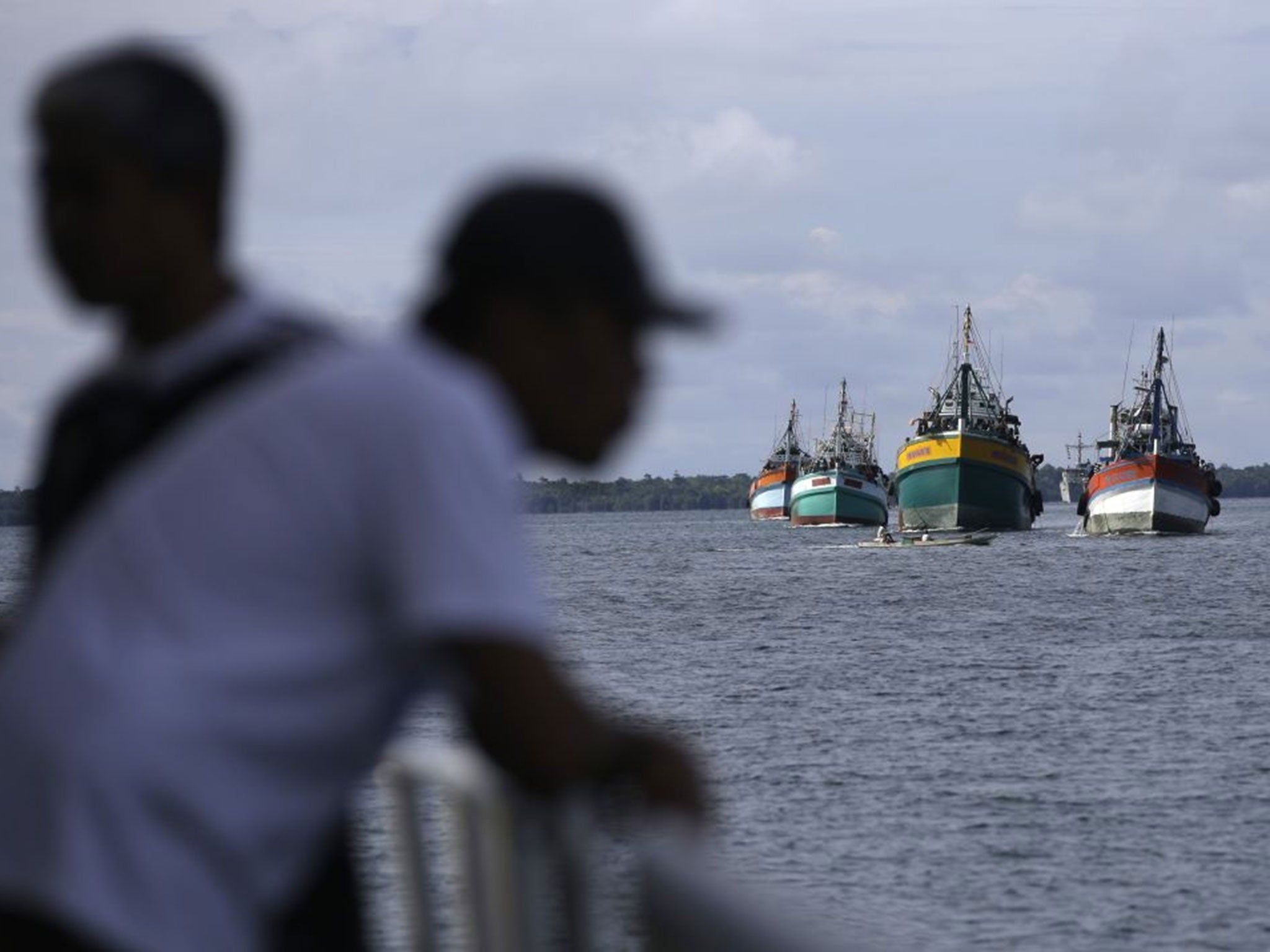Officials rescue 300 slaves forced to work on seafood trawlers
The captives were punished by a man called 'the enforcer'

Some 300 enslaved migrant fishermen were carried to freedom on Saturday in trawlers which they had been forced to work from, as they were rescued from a remote Indonesian island.
The men travelled for 17 hours overnight from the island of Benjina to Tual, where they entered the site of their new temporary home, and will sleep in a large open-air pavilion.
Following an investigation by the Associated Press (AP) which revealed the situation these slaves were faced with, Indonesian officials visited the island village of Benjina on Friday, and offered to immediately evacuate the men from their holdings.
The captors snared the men by luring or tricking them men into leaving their home countries to go to Thailand, and were forced the men to catch seafood which was exported worldwide, to nations including the US.
Officials found that the captives were living in brutal conditions, where a man known as the “enforcer” was hired by boat captains to punish them for what was deemed misbehaviour.
Burmese fishermen walk on a beach in Benjina (Image: AP)
Read more: The truth behind your sushi roll
The AP report also uncovered videos of migrants locked in a cage, as well as a slave graveyard. The men gave reporters disturbing accounts of how they were beaten and shocked with Taser-like devices at sea, forced to work with few breaks and without clean water or proper food, paid little or nothing and prevented from going home.
When they arrived in Burma, the rescued men were given traditional packets of Indonesian rice wrapped in paper, while the sick and injured received medical treatment.
Officials from Burma are to visit the island next week to help bring the men home, and locate others who are still trapped on Benjina - an island so remote that a mobile phone mast was only erected last month.
Aung Aung, 26, who lifted his hair on the left side of his head to show a fat, jagged scar stretching from his lip to the back of his neck — the result of a machete attack by his captain's son, said: “I'm so happy, I wanted to go home for so long. I missed home and especially after I was cut ... I was afraid I would die there.“
On Friday, the US State Department said it was calling on Burma to quickly repatriate the men. US companies unwittingly buying seafood with links to the supply chain, including Wal-Mart, also pressed for action and commended Indonesian officials.
"We don't condone human trafficking in the supply chain, and we applaud the government's work to end this abuse. Our hearts go out to these men, and we wish them well on their journeys home," said Marilee McInnis, spokeswoman for Wal-Mart.
Additional reporting by AP
Join our commenting forum
Join thought-provoking conversations, follow other Independent readers and see their replies
Comments
Bookmark popover
Removed from bookmarks